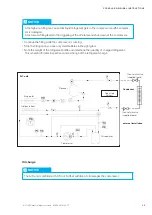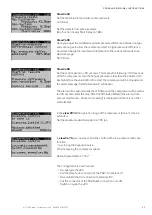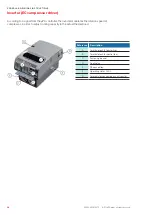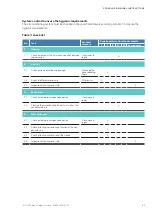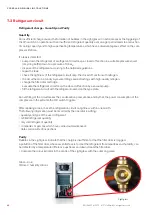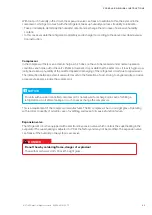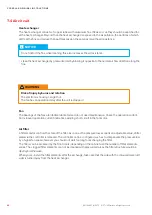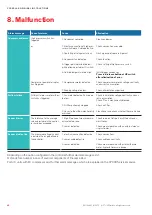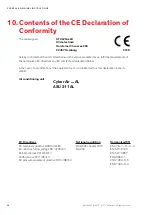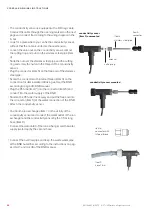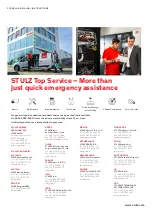
43
cyberlab original instructions
© STULZ GmbH – all rights reserved EN/02.2018/G17F
Compressor
In the compressor there is an ester oil charge, which does not have to be renewed under normal operation
conditions and holds out for the unit‘s lifetime. However, it is possible that the ester oil, as it reacts hygroscop
-
ically, has taken up humidity of the air after repeated recharging of the refrigerant circuit due to repair works.
The interaction between ester oil and water results in the formation of acid. Owing to a hyperacidity, corrosive
processes take place inside the compressor.
NoTiCE
For units with a speed controlled compressor it is not allowed to recharge oil in case of refilling a
refrigeration circuit after a leakage. In such cases exchange the compressor.
This is a requirement of the compressor manufacturer. The EC compressor has no oil sight glass. Operating
with incorrect quantity of oil will in case of overfilling and lack of oil cause a function failure.
Expansion valve
The refrigerant circuit is equipped with a electronic expansion valve, which controls the superheating in the
evaporator.The superheating is adjusted to 7 K at the factory and may not be modified. The expansion valve
can freeze, if the humidity in the system is excessive.
dANgER
do not thaw by soldering flame, danger of explosion !
Thaw with moist warm cloth. Check the sight glass.
With too much humidity in the circuit, the expansion valve can freeze. In addition to this, the ester oil in the
compressor, which gets in touch with the refrigerant, takes up humidity and loses its ability to lubricate.
• Take an oil sample, determine the humidity content and exchange the oil in case of excessive humidity
content.
• In this case evacuate the refrigerant completely and recharge it according to the above described evacua
-
tion instruction.

